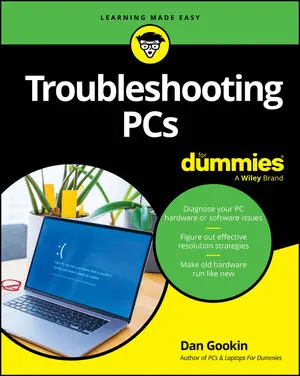Shopping for a laptop can seem a little overwhelming. Not to worry. This list will help you know what to look for. When you’re purchasing your laptop, check for the following features:
Portability: The size and weight of your laptop may be important if you plan to take it with you when you travel or work away from home. Remember, however, that a smaller, lighter weight laptop will typically have a smaller screen.
Memory: Your computer should have at least 2 gigabyte (GB) of RAM.
Processor: Most processors today are multiple-core processors, such as the i3, i5, and i7 processor lines from Intel. Those with two processors are called dual-core; those with four processors are called quad-core; and processors with six cores are referred to as hexa-core. The bottom line with cores is that the more you have, the faster your laptop can process instructions because all the cores can work at once.
Battery life: If you will use your laptop in settings without a power source, such as on a plane or in the doctor’s waiting room, look for a model with longer battery life (some offer 10 hours or more).
Keyboard: Make sure the keyboard feels comfortable to you. Some laptop keyboards may be as big as a standard keyboard, but others can feel cramped, especially if you have dexterity challenges.
Screen: Laptops come with screens that range from 9 inches to 17 or more. A 15-inch monitor is comfortable for most people, but if you do work with higher-end images or watch videos, consider a larger screen as larger screens may be easier on your eyes. Consider getting a touchscreen laptop to take advantage of all of Windows 10 touchscreen features.
CD/DVD Drive: Laptops might come with a CD or DVD drive or not. If a laptop is right for you in other ways but doesn’t have a CD/DVD drive, consider opting for an external drive.
Hard Drive: Computers have traditionally used hard drives to store programs and data. In many laptops a solid state drive is used in place of a hard drive. The access speed (how fast your computer retrieves data) of solid state drives is much higher than the access speed of hard drives. If you need a laptop which processes information very quickly look for one with a solid state drive.
Wireless capability: To connect to some wireless devices and networks, you need wireless capability.
Included software: Some laptops come with utility programs such as antivirus software or productivity software such as Microsoft Office. Be aware that some of this software offer only short-term trial versions and you have to pay to buy the full version upgrade.
Manufacturer support: Check the warranty and technical support available. Also check for helpful documentation on the manufacturer’s website.
Graphics and sound cards: If you want to use multimedia or game software, ask for more sophisticated sound and video features such as a discrete graphics card or discrete sound card.
A webcam: If you will be calling your friends or grandchildren over a service such as Skype, it’s useful to have a built-in webcam to transmit video images while talking. Most laptops today include a webcam located just above the laptop screen.






